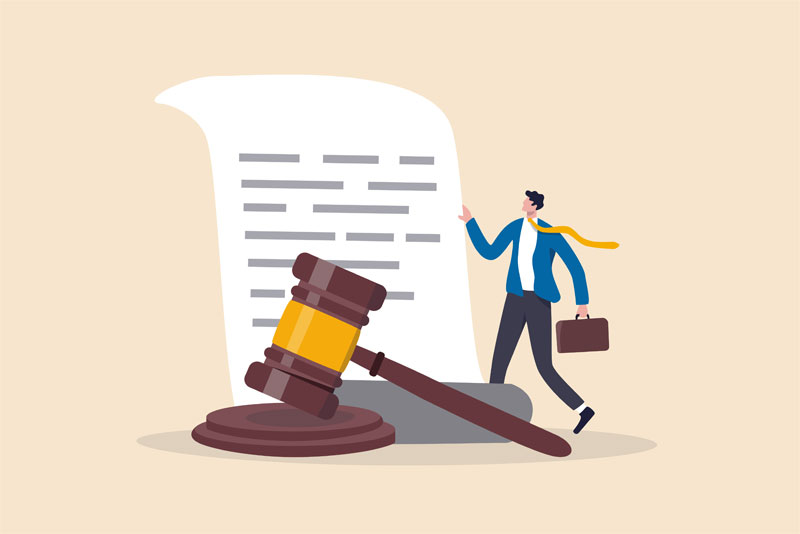Per the recently passed Corporate Transparency Act (CTA), owners of smaller Limited Liability Companies (LLCs) and corporations will soon have another compliance requirement to adhere to this year. LLCs and corporations with fewer than 20 employees must report information about their owners and company applicants to the federal government.
What is the Corporate Transparency Act?
The Corporate Transparency Act (CTA) is federal legislation created by the U.S. Department of the Treasury’s Financial Crimes Enforcement Network (FinCEN) and passed by Congress as part of the Anti-Money Laundering Act of 2020. The final ruling, implemented on September 29, 2022, requires all LLCs and corporations with fewer than 20 employees to report ownership and key applicant information to the federal government.
Before the CTA ruling, states had the option of requiring extensive ownership information during the formation of legal entities—and the information stayed with the state. The CTA now requires beneficial owner information (BOI) and entity applicant data to be reported and stored in a national database.
What is the CTA’s Purpose?
According to FinCEN, the CTA will provide “essential information to national security, intelligence, and law enforcement agencies; state, local, and Tribal officials; and financial institutions to help prevent drug traffickers, fraudsters, corrupt actors such as oligarchs, and proliferators from laundering or hiding money and other assets in the United States.” Without a central database of entity ownership information, shell and front companies can form and shield ownership information, making it easier for criminals to hide illegal activities.
The CTA is not the first ruling established by FinCEN to identify crimes. Starting in 2018, FinCEN required all financial institutions to collect and verify beneficial ownership information for new accounts. Called the Customer Due Diligence (CDD) ruling, the intent of the Beneficial Ownership Rule was to help authorities reduce money laundering, tax evasion, and other financial crimes.
The new CTA rule identifies who must file a BOI report with FinCEN, what information must be reported, and when the report is due.
The rule requires reporting companies to file reports identifying two categories of individuals:
- The beneficial owners of the entity
- The company applicants of the entity
What is a Reporting Company?
The CTA identifies two types of companies required to report:
- Domestic reporting companies include corporations, limited liability companies (LLCs), or any entity, such as limited liability partnerships (LLPs), created by filing documents with the secretary of state (or any office for the formation of entities).
- Foreign reporting companies are corporations, LLCs, or other entities, conducting business in states other than their state of formation.
The CTA also identifies certain entities exempt from the Act, such as insurance companies, tax-exempt entities, public companies, pooled investment vehicles, investment advisers, and subsidiaries owned by exempted entities.
Who Qualifies as a Beneficial Owner?
Per the CTA, a beneficial owner is any individual who either directly or indirectly:
- Exercises substantial control over a reporting company
- Owns or controls at least 25% of the ownership interests of a reporting company
Substantial control refers to the activities of individuals, specifically those who make important decisions on behalf of the entity.
Keep Learning: What Is a BOI Report and Do You Need to File One?
What are Company Applicants?
The CTA rule also requires entities to report information about company applicants, who are either:
- An individual (or individuals) who directly file documents creating the entity
- An individual (or individuals) who are primarily responsible for directing or controlling the filing of the relevant document by another
However, entities formed before January 1, 2024, are not required to report company applicants, unlike BOIs, which must be reported.
What Information is Required?
Reporting companies must submit:
- The entity’s business name
- DBA (if applicable)
- Principal street address
- State of business registration
- Federal Tax ID Number
In addition, BOIs and company applicants must submit:
- Full legal names
- Birthdates
- Home addresses
- A unique identifying number (e.g., social security, passport, driver’s license)
- An image of the identifying document
Once the information has been supplied, the entity will be issued a FinCEN identifier number. After the initial report, any changes or updates to BOIs must be filed with FinCEN.
Next Steps
Existing reporting companies (formed before January 1, 2024) have one year to file initial reports. Reporting companies formed after January 1, 2024, have 90 days from the notice of their formation to file their initial reports.
References:
https://www.federalregister.gov/agencies/financial-crimes-enforcement-network
https://www.53.com/content/fifth-third/en/business-banking/managing-business/beneficial-ownership.html
CorpNet Can Help You File Your BOI Report
CorpNet is here to help file beneficial ownership information reports for LLCs, Corporations, and other business entities.





